What is Embodiment and How Can it Help Childless Women?
Simply put, embodiment means coming home to your body.
Reconnecting with my body has been critical to integrating grief and learning to accept childlessness and myself. It hasn't been easy; at times, it has been a painful process but one that is well worth exploring.
Our bodies significantly influence how we experience and interact with others and the world around us. We feel, taste, touch, smell, hear, and see through our bodies. As a result, we experience pleasure, connection and joy.
Disconnecting from our bodies during challenging experiences is a natural coping mechanism but one that can become the default and limit our capacity to feel joy and connection.
How does this disconnection show up?
For those of us whose path to childlessness has involved: miscarriage(s), an inability to conceive, infertility due to medical conditions, procedures or a disability, or failed fertility treatments, there is often resentment that our bodies have let us down and it isn't something we can trust. To get through all the appointments and procedures, many women I have spoken to shared that they leave their bodies to cope. This was also my experience.
I have also spoken with women who haven't had a chance to conceive and heard them talk of grief and loss that inhabits their bodies in a subtle yet profound way.
Taking all of this into account, it is no wonder we aren't accepting of ourselves and our bodies and that we don't feel safe in our bodies and don't see them as a place to come home to. In my experience, reconnecting and befriending my body has become a necessary part of healing, acceptance and belonging.
Why would I want to befriend my body?
What good will it do me on the path to acceptance of my childless life?
Our bodies give us an incredible amount of information about the world, about others and ourselves all the time, and if we cultivate a practice of tuning into this information, it can help;
identify our values and what is important to us;
find our place in the world,
make decisions that align with our values,
cultivate self-confidence,
feel a sense of agency, like we have choices,
build trust in ourselves and others.
All of which is necessary to feel confident, accepted, and like we belong in the world.
So how do we start?
The first step is to recognize that you have a body by tuning in to it.
Now, without changing anything, notice how you are sitting as you read this.
What parts of your body are touching the chair?
Do you tend to hold your belly in or clench your jaw?
What sensations are present?
Do you feel a sense of heat rising or a heavy, grounded feeling?
What feedback is your body giving you about this information you are hearing?
Do you feel constricted anywhere, or is there a sense of relief?
This noticing is the beginning of becoming more embodied.
Any change in mindset or way of being starts with awareness. After years of actively disconnecting, it can be hard to remember and create a habit of connecting to the body.
As a long-time yoga practitioner and teacher, incorporating the mindset of befriending and connecting with my body into my yoga practice was a natural fit. I brought this intention to the forefront with excellent results and focused on it while moving and breathing.
I learned:
what movements feel good in my body,
that I tend to override physical discomfort and push through (not to my benefit),
that deep self-confidence comes from being kind to myself,
that self-compassion is foundational to healing childless grief,
that I can trust my body and listen to its feedback.
This is the approach that I continue to use in my practice and teaching in my monthly online Mindful Movement sessions for childless not by choice women and the Embodied Possibility six-week course.
You can download a free practice here and try it out yourself.
May practice serve you well.




